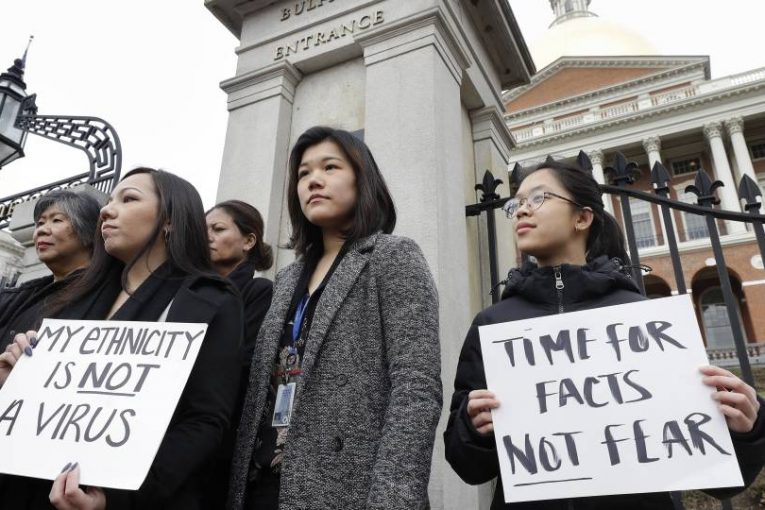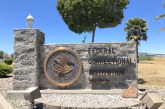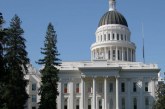

By Lovepreet Dhinsa
SAN FRANCISCO – San Francisco District Attorney Chesa Boudin and other city officials joined the Coalition for Community Safety and Justice (CCSJ) and other Asian American organizations across the Bay Area this week to reflect on anti-Asian, racist-centered incidents.
Cynthia Choi (ICAA), one of the hosts of the event, presented the goals of the organizations and created a space to share their demands with city officials, noting that “these incidents are stark reminders for us to call for action” and emphasized the need to collaborate on promoting peace within the community.
She noted collaboration with the community remains at the focus of several different Bay Area organizations, and various community activists and organization leaders took turns in reflecting and calling on city officials for support and resources.
Asian Pacific Environmental Network leader, Alvina Wong said she hopes to bring attention to the language barrier faced by many families and businesses in Chinatown, which she said further exacerbates the systemic hardships.
Wong noted several pilot programs created in an attempt to increase public safety, getting people housed, and getting people treatment for mental health, adding, “our resilience is not the reason for government officials to ignore the needs of Chinatown residents and
 small businesses right now. Chinatown is here to stay.”
small businesses right now. Chinatown is here to stay.”
She seeks to appeal to city officials and work to produce “community-driven, culturally-relevant, and trauma-informed solutions”.
Community Organizer Sarah Wan (Community Youth Center) affirmed the programs, and wants to make these programs permanent.
In the spirit of community healing, the Community Youth Center has created a victims and survivor fund in San Francisco, she said, emphasizing community organizing is not possible without the support of city officials and other communities of color.
Judy Young, leader of South East Asian Development Center, made two recommendations to city officials, including investing in resources for the victim and their family, and supporting communities of color with economic and social services.
Young stated that “when a victim gets hurt, their family is also hurt,” and stressed a need to support families throughout the entire process with the concurrent issue of the language barrier.
Echoing Young’s statements for supporting the community, Stanley Pun, organizer of AYPAL, said the need for developing initiates centered around intervention and prevention, in an attempt to support the community holistically.
Pun represented the voices of young adults, and he stated that he understands the “pain, sadness, and frustration of being a target of racism [whilst] having their struggles invisible, such as having false narratives like the model minority myth and racial scapegoating.”
Ener Chu, leader of the East Bay Local Development Corporation (EBALDC), recognized the importance of police for public safety, but also highlighted the use of a previous pilot program, in which an Asian Prisoners Support Committee was created to reintegrate folks into the community.
He said it became an integral part of the community because of the strong relationships that were built, adding, “people are desperate to survive, but also desperate to connect. It is difficult to shove a senior citizen to the ground, if you see yourself in them and have a relationship with them. It is difficult to racially profile someone if you are not afraid of them and you can see that person as an individual.”
Chu emphasized that building relationships with the community is key to moving forward, promoting healing within the community, and mitigating the effects of anti-Asian racism.
Lai Wa Wu, leader of the Chinese Policy Association, suggested three areas of improvement for the city of San Francisco and Oakland to increase long-term, community-centered investments.
These included ensuring that all individuals across all backgrounds receive equitable support and resources for them to heal, increase intervention and prevention based on programs to end the cycle of violence, and to resource cross-racial healing and educational work.
A community member asked “what are your thoughts on policing? How difficult is it to see these incidents be treated as hate crimes?”
Choi stated that “we have to look beyond traditional ways that we address these challenging issues, especially if we have seen that they don’t work as with recent incidents.”
Organizations over the Bay Area stressed the importance of creating these community spaces and working with city officials continuously.
Chesa Boudin, among other city officials, agreed to welcome community spaces and create open dialogues for change amongst community members. There was a collective interest in working alongside other communities of color and city officials to promote community healing and infrastructural investments.
To sign up for our new newsletter – Everyday Injustice – https://tinyurl.com/yyultcf9
Support our work – to become a sustaining at $5 – $10- $25 per month hit the link:





